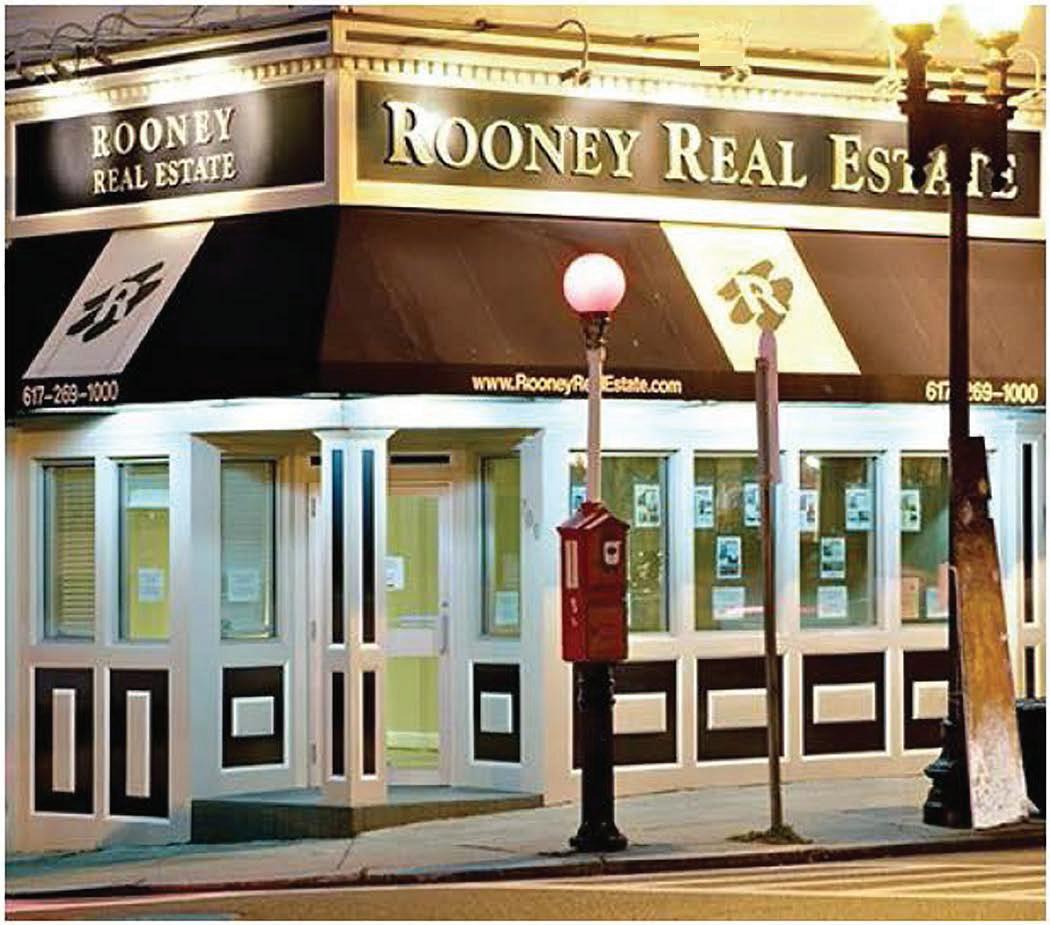




As Massachusetts approaches a critical vote, restaurant owners, employees, and industry advocates are rallying against Question 5. This legislation, called Minimum Wage for Tipped Workers, and introduced by an out-of-state activist group, would dramatically shift tipping policies for restaurant workers.
While advocates argue the law aims to guarantee a $15 minimum wage for tipped workers, industry professionals warn that it could lead to higher menu prices, job losses, and a decline in service standards.
“We weathered a massive storm through the pandemic,” said Roza Lyons owner Rob Fitzharris, whose restaurant
hosted a press conference with Senator Nick Collins on Tuesday. “To do this to the bar and restaurant industry now, it’s going to have a very negative effect on our survival.
“Ultimately, if you ask the people who it’s going to directly affect -- our bartenders, our servers -- nobody in the industry is in favor of it,” Fitzharris said, noting there is a system in place that works. “None of this makes any sense at all.”
In Massachusetts, a grassroots movement is underway to vote “No” on Question 5. Organizers and supporters have distributed more than 4,000 yard signs and have been holding local informational sessions to
Continued on Page 3


As you can see from the photos the children and their families at South Boston Catholic Academy had a great time at this year’s SBCA Halloween Dance! Thank you to our Social Committee members: Tammy Gates, Maureen Jorgensen, Christine McKenna, Taryn Powers, Jaclyn Price, Emily Roy, Tracyann Seder, Autumn St. Hilaire Mulcahy and a Big Thank You to Mrs. Hasko, the Art Teacher, for the beautiful decorations made by students! Thank you to all those who helped in any way to make this fun family event possible.
More Photos on Page 8

by Rick Winterson
You are aware that there are five (5) Ballot Questions for you to vote for or against on next Tuesday’s Election ballot. South Boston Online makes it a practice never to either endorse or advise against political candidates for any elective office. We believe that choice is strictly up to you. However, now and then we give our opinions on Ballot Questions that deal only with issues, not with candidates. All of these five Ballot Questions have nothing to do with candidates for various offices. All five of them require only a YES or NO vote from you, the voter.
South Boston Online recommends that you vote YES on Ballot Question One (1), and NO on the other four – Ballot Questions Two (2), Three (3), Four (4), and Five (5).
Ballot Question One (1)
Asks you, the voter, to approve audits of the Massachusetts Legislature by the State Auditor. Just the massive amount of unfinished business left behind when the Legislature finally adjourned this
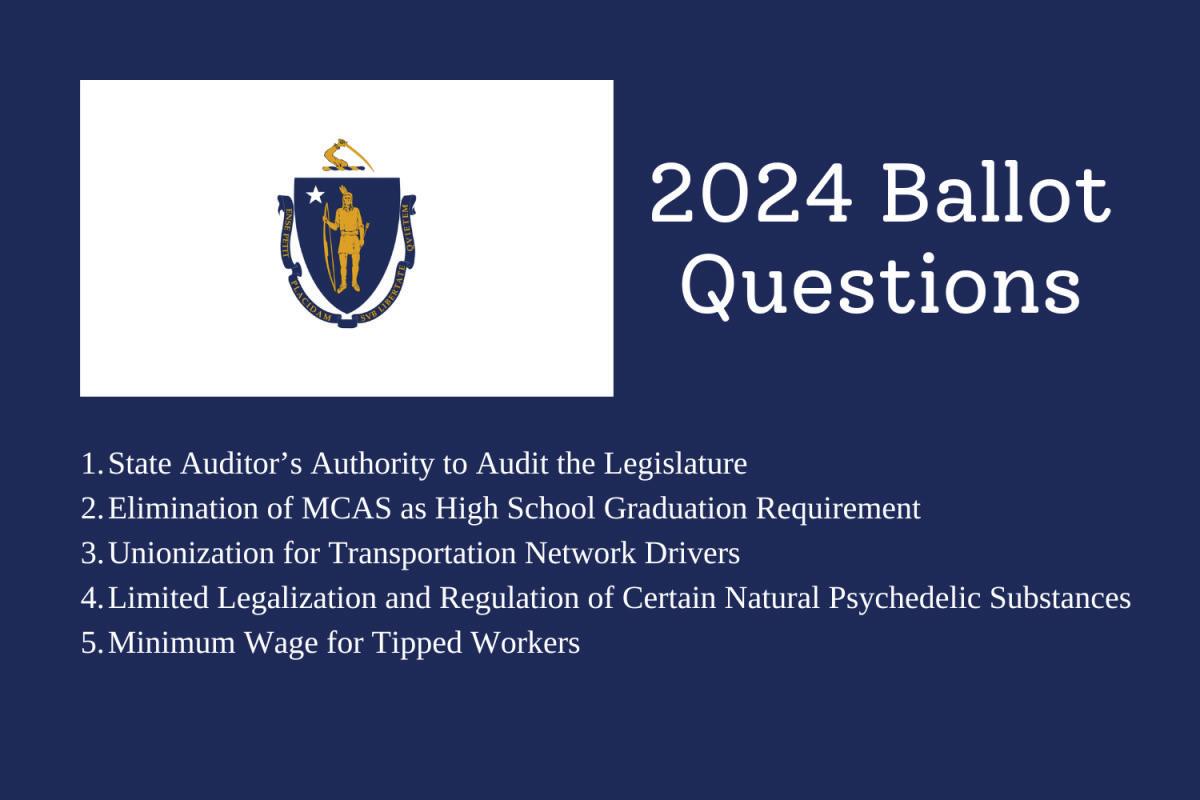
summer proves that it needs to be audited. We recommend you vote YES on Question One (1).
Ballot Question Two (2)
Sseeks approval to eliminate the MCAS test graduation requirement. MCAS testing was originally approved over 30 years ago. Since then, 99% of Massachusetts students have successfully passed MCAS. Without question, MCAS works! Please vote NO on Question Two (2).
Ballot Question Three (3)
Would allow drivers-for-
makes no sense, because these drivers already work successfully (and willingly), according to rules they themselves make. We believe Question Three (3) deserves your NO vote.
Ballot Question Four (4), If approved by voters, question 4 would legalize certain plant-based psychedelics, even ones that are home-grown. With the immense drug and addiction problems already here in our State, NO is the only vote that makes any sense at all
regarding Question Four (4).
Ballot Question Five (5)
Seeks to raise the so-called “tipped minimum wage” of $6.75 per hour to the current overall “minimum wage” of $15 per hour. More than nine out of ten (91%) tipped workers, such as waiters/ waitresses and bartenders, are against this. If that’s what they themselves think, we believe that a vote of NO is the proper vote. Once again, in summary, that’s “YES” on Question One (1) and “NO” on the other four Questions (2, 3, 4, 5). Thank you in advance for voting in this most important Election.
The final repair that is needed to complete the pool is the replacement of the chlorine pump, which will cost around $40,000. Despite the major renovations that have already been completed, including the installation of a new liner, the pool remained closed all summer and forced parents to travel farther than usual for their children to go swimming. The Boston Public Schools Facilities Department has stated that they have exhausted their budget, ultimately preventing the pool from reopening. The closure of the pool has exposed safety and
equity concerns for families living in South Boston, particularly those that live in the Boston Housing Authority developments surrounding the Community Center.
“My neighbors in South Boston have expressed their frustration regarding the prolonged closure of the pool at the Condon Community Center. Of the eighteen Boston Centers for Youth and Families (BCYF) pools in the city, six were closed for renovations over the summer,” said Councilor Flynn.”This is not only a quality of life issue, but primarily a safety issue for our kids
who are being left without critical swimming lessons throughout the year. The city must find the funding to complete pool repairs so that we’re able to provide lessons for our children and neighbors in public housing.”
“It has come to my attention, from concerned families and staff, that the final repairs needed to reopen the pool are minor so I do not accept that they have exhausted all funds to get the chlorine pump working and kids swimming in the pool as soon as possible,” said Councilor Murphy. “The situation is unacceptable because
the Condon Community Center plays a crucial role in providing swimming lessons during the fall and winter months, and ensuring that children can swim safely during the summer months. The pool has been closed on and off for years now and this is a safety and equity issue for me, particularly for the residents of the surrounding housing development who rely on this facility for recreation and swim safety.” For more information, please contact Councilor Flynn’s office at 617-635-3203 and Ed.Flynn@Boston.gov.
Continued from Page 1
No on Question 5
educate voters on what they see as the risks of this legislation.
“Over the last several months, talking to bartenders, talking to small business owners, talking to wait staff, it has been a unanimous ‘No.’ The people who are going to be most affected are saying no,” said Collins. “The only folks out there promoting this are an out-ofstate coalition that’s trying to push this experiment on Massachusetts.
“This is an easy one,” said Collins. “No on 5 is how I’m voting in this election. We’ve seen the social experiment tried in other parts of the United States and it failed in the aftermath of the COVID pandemic.”
Washington, D.C. passed this legislation recently and it’s been a disaster, said Steve Clark, president of the Massachusetts Restaurant Association. “Ten percent of full-service restaurant jobs are gone; 95% of restaurants have raised prices, and 75% have added surcharges.”
According to the booklet, “Massachusetts Information for Voters: 2024 Ballot Questions,” a yes vote would increase the minimum hourly wage an employer must pay a tipped worker to the full state minimum wage implemented over five years, at which point, employers could pool all tips and distribute them to all non-management workers.
“It’s an initiative nobody asked for,” said Joe Rull of
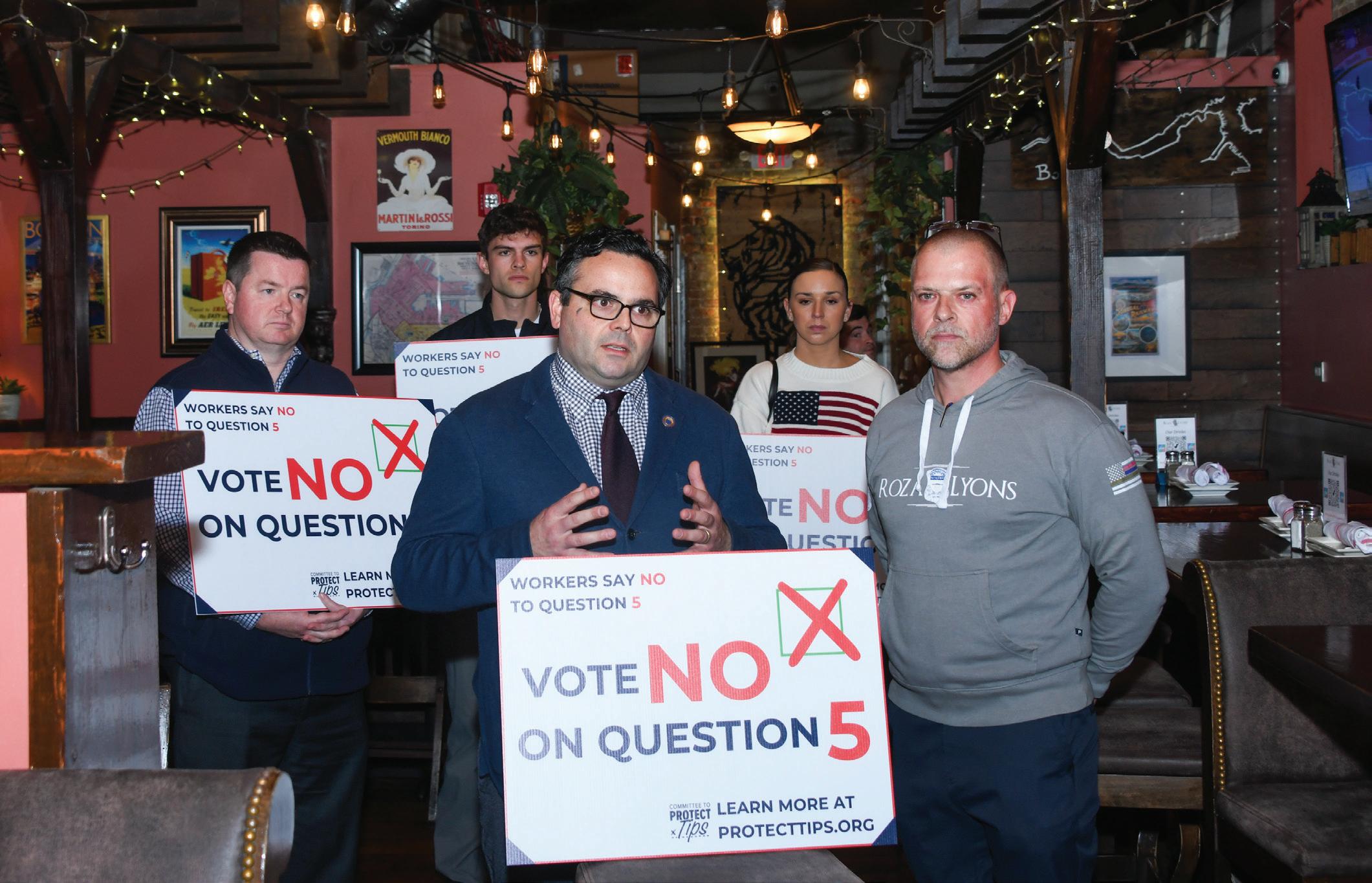
Strategies Group. “If the system’s not broken, why fix it?”
Overwhelmingly, Rull said, the servers have consistently said they like the way the current system works; they always receive minimum wage, even if their tips don’t add up $15 an hour. “And what this would do, if passed, would force restaurants to raise prices that we cannot afford these days and it would more than likely put a lot of people out of their jobs.”
This is binding legislation and if it passes, would go into effect on Jan. 1. Restaurant industry leaders argue that the proposed legislation, if passed, will cause ripple effects across the entire community, driving up food costs – your

$15 burger could be $25 – and lowering wages. “You could see restaurants closed because of it and jobs lost,” Collins said.
“I don’t think people fully understand the implications that it will have across the board,”
Fitzharris said. “I think it’s important for the non-industry people to understand that it’s going to have such a detrimental effect. You’re going to see businesses, especially like ours, that are not going to weather the storm.”
Register: bit.ly/3YuUhXv
Toll Free: (833) 568 - 8864
Meeting ID: 161 838 6463
DESCRIPTION:
The proposed project consists of 31 new residential home ownership units with 5 affordable units as well as approximately 759 square feet of ground floor commercial space.
Boston City Councilor Ed Flynn, Councilor Tania FernandesAnderson, and At-Large Councilor Henry Santana held a hearing to discuss ways to provide public safety support and address quality of life issues at Massachusetts Avenue and Melnea Cass Boulevard (Mass & Cass) last week. At the hearing, the Boston Public Health Commission and Coordinated Response Team spoke about their outreach efforts and the current strategies to provide support and resources for those who are seeking detox and other programs. They also discussed the City’s needle pick up program, as well as working in partnership with the Boston Police Department in the areas that the drug activities have migrated to and causing public health concerns, such as areas in the South End, Roxbury,
South End and Dorchester. Many concerned civic leaders and panelists testified at the hearing, including those from Andrew Square, the South End, non-profit organizations such as the Gavin Foundation, St. Francis House, Pine Street Inn, Greater Boston Food Bank. Moreover, business stakeholders such as the Newmarket BID and senior management at the South Bay Mall offered public testimony as well. In their remarks, residents expressed a decrease in quality of life and overall sense of public safety due to the presence of needles in parks and streets, the rise in property crimes, and an increase in aggressive behavior. The Greater Boston Food Bank and management at the South Bay Mall also spoke of having to spend upwards of hundreds of thousands
bit.ly/3XYOc5f Toll Free: (833) 568 - 8864 Meeting ID: 160 198 2121
PROJECT PROPONENT:
HRP 776 Summer Street PropCo, LLC
DESCRIPTION:
The Boston Planning Department is hosting a Virtual Public Meeting for the proposed project located at 776 Summer Street located in the South Boston neighborhood of Boston. The purpose of the meeting is to discuss the Development Plan for Phase 2 and First Amendment to the Masterplan for Planned Development Area (PDA) No. 128 that was filed and its potential impacts. The meeting will include a presentation followed by questions and comments from the public. HRP 776 Summer Street PropCo, LLC, (the “Proponent”) proposes the construction of four (4) new buildings, rehabilitation of an existing turbine building, and development of related parking, infrastructure and structures containing approximately [1,025,500] square feet of Gross Floor Area.
Mail to:
Phone: Email:
Schutte
Zoe
Planning Department
One City Hall Square, 9th Floor
Boston, MA 02201
617.918.4311
Zoe.schutte@boston.gov
Website: bit.ly/3ZMyg7y
Close of Public Comment Period: 1/15/2025
Teresa Polhemus, Executive Director/Secretary

of dollars to upgrade security and facilities to protect their operations.
Many residents expressed the need for mandatory drug rehabilitation for those with substance abuse disorders, and belief that the city’s policy is no longer a tenable strategy.
Since the closure of the city’s Long Island recovery campus in the Fall of 2014, the opioid crisis has continued to drive those battling substance use disorder to Mass & Cass, where they can seek nearby methadone treatment, or a bed at city-run shelters. While the encampments are removed, crowds continue to gather daily in the area, and violence and illegal activities, such as open-air
drug dealing and drug use, have persisted. These activities have also spread to Roxbury, South End, Dorchester, South Boston and Downtown, which has negatively impacted residents and businesses.
“Mass & Cass continues to pose public safety and quality of life challenges for our neighbors, residents and businesses on a daily basis,” said Councilor Flynn. “We need to continue to provide treatment and recovery services for people with substance use issues; however, we must arrest individuals who are breaking the law, including those who continue to deal drugs and prey on vulnerable people, as well as others committing acts of violence.”

Massachusetts Convention Center Authority Board of Directors Votes to Approve 30-Year Hospitality, Public Sector and Finance Veteran Marcel Vernon, Sr. as Executive Director
The Massachusetts Convention Center Authority (MCCA) Board of Directors voted unanimously yesterday to offer Marcel Vernon, Sr. the position of Executive Director.
“Marcel Vernon is a highly qualified leader who has experience running large casinos and an extensive background in hospitality, finance, business, social services and state government,” said Massachusetts Governor Maura Healey. “He is an excellent choice to run the convention center authority. I’m grateful for the hard work of the MCCA Board and the search committee throughout this process and look forward to our continued partnership to support the convention industry in Massachusetts and grow our economy.”
“On behalf of the Board of Directors, I am excited for the selection of Marcel Vernon as the MCCA’s next Executive Director,” said MCCA Board Chair Emme Handy. “We are confident that Marcel is the right choice to lead this important economic development engine, and we look forward to working with him to ensure the success of the MCCA as we begin this next chapter. As we welcome Marcel to the MCCA, we extend our deep gratitude to Interim Executive Director, Gloria Cordes Larson, for her incredible leadership and tireless work over the past eleven months.”
“I am honored to have the opportunity to lead the Massachusetts Convention Center Authority into the future,” said Marcel Vernon.
“Our goal is to be a catalyst for economic growth, community development, and positive change. I am committed to working with our dedicated team and valued partners to achieve this vision.”
Marcel Vernon brings more than 30 years of leadership experience across hospitality, government, corporate finance, non-profits, and higher education to the role of Executive Director. He has both domestic and international experience, a proven ability to manage complex operations in dynamic environments, and a deep background in fiscal management and planning. Vernon is currently Chief Financial Officer and Senior Vice President of Finance at Bay Cove Human Services, an 1800-person organization that serves more than 25,000 people annually, where he manages a $182 million budget across 174 Massachusetts facilities. He is responsible for budgeting, financial planning and analysis, revenue management, procurement, and facilities management.
Vernon has led teams at casinos and hotels, spending over 10 years in the hospitality sector, starting his career with Marriott in a sales and marketing role before moving into senior leadership positions with Harrah’s Entertainment, Mohegan Sun, and Tropicana Entertainment. In addition to career stops in Louisiana, Nevada, Florida and Connecticut, Marcel has also worked internationally in the United Kingdom, China, Mexico, Poland and Ukraine. Due to his leadership at the Belle of Baton Rouge Casino, he received the key to the city in Baton Rouge.
Vernon holds a master’s degree in business administration from Syracuse
University and a Bachelor of Arts degree from Colgate University. He serves on the Syracuse University Whitman School of Business Advisory Council, The CFO Leadership Council’s Diversity Advisory Council, and the Hope and Comfort Board of Directors.
The MCCA was established as an independent public authority of the Commonwealth of Massachusetts in 1982 and is governed by a 13-member Board of Directors. In 2024, the MCCA hosted 232 events at the BCEC, Hynes and MassMutual Center with 531,000 attendees, generating 683,000 hotel room nights, and $959 million in economic impact.
The MCCA has over 424

employees with an annual operating budget of approximately $95 million and its state-of-theart facilities manage and promote a wide range of events from high school graduations to exhibitions to athletic events. Its facilities are widely acclaimed for offering large scale accommodations, and facility bookings currently extend to the year 2040.
















Perry Elementary school students, staff and volunteers celebrated their first Annual Pumpkin Palooza last Friday, October 24th. Together they enjoyed educational
and sensory activity stations organized by the school’s Parent Council, including a pumpkin themed ring toss, a mini golf station and delicious pumpkin cookies from Annie’s Bakery.



The highlight was the Perry School Pumpkin Patch. With the generous donation from Quinlan-Wasserman, students all were able to choose a pumpkin or gourd
from the mini patch and decorate a pumpkin to take home. Thank you to all of our sponsors and volunteers for making the Palooza such a memorable event.



More than 100 volunteers -- including Girl Scout Troops 70041 and 64224 -- planted about 1,500 daffodil bulbs Saturday as part of a West Broadway Neighborhood Association (South Boston) beautification event. Prior to Saturday, volunteers dug 270 holes to make planting easier for the helpers. The neighborhood will be blooming come spring!




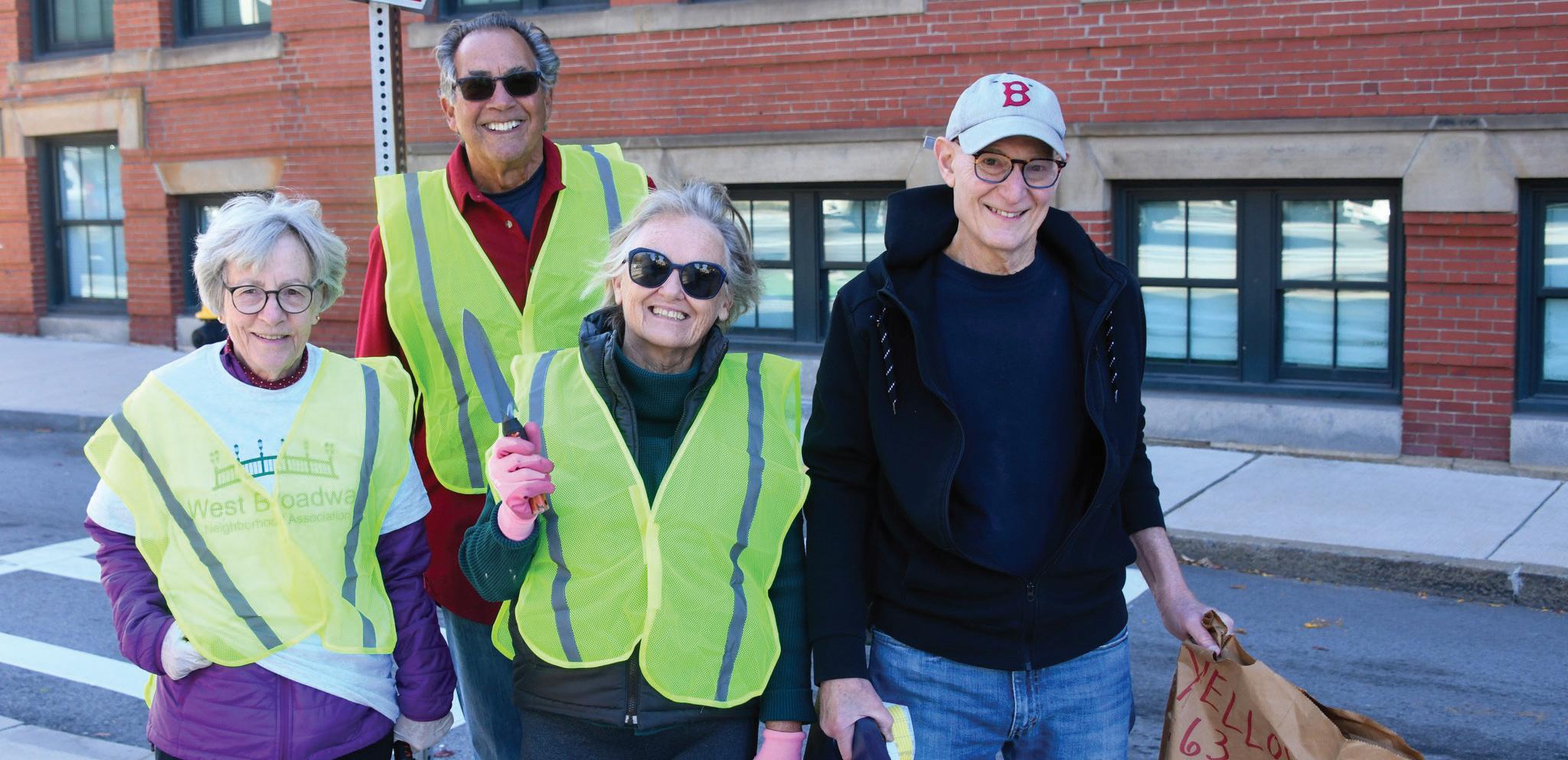
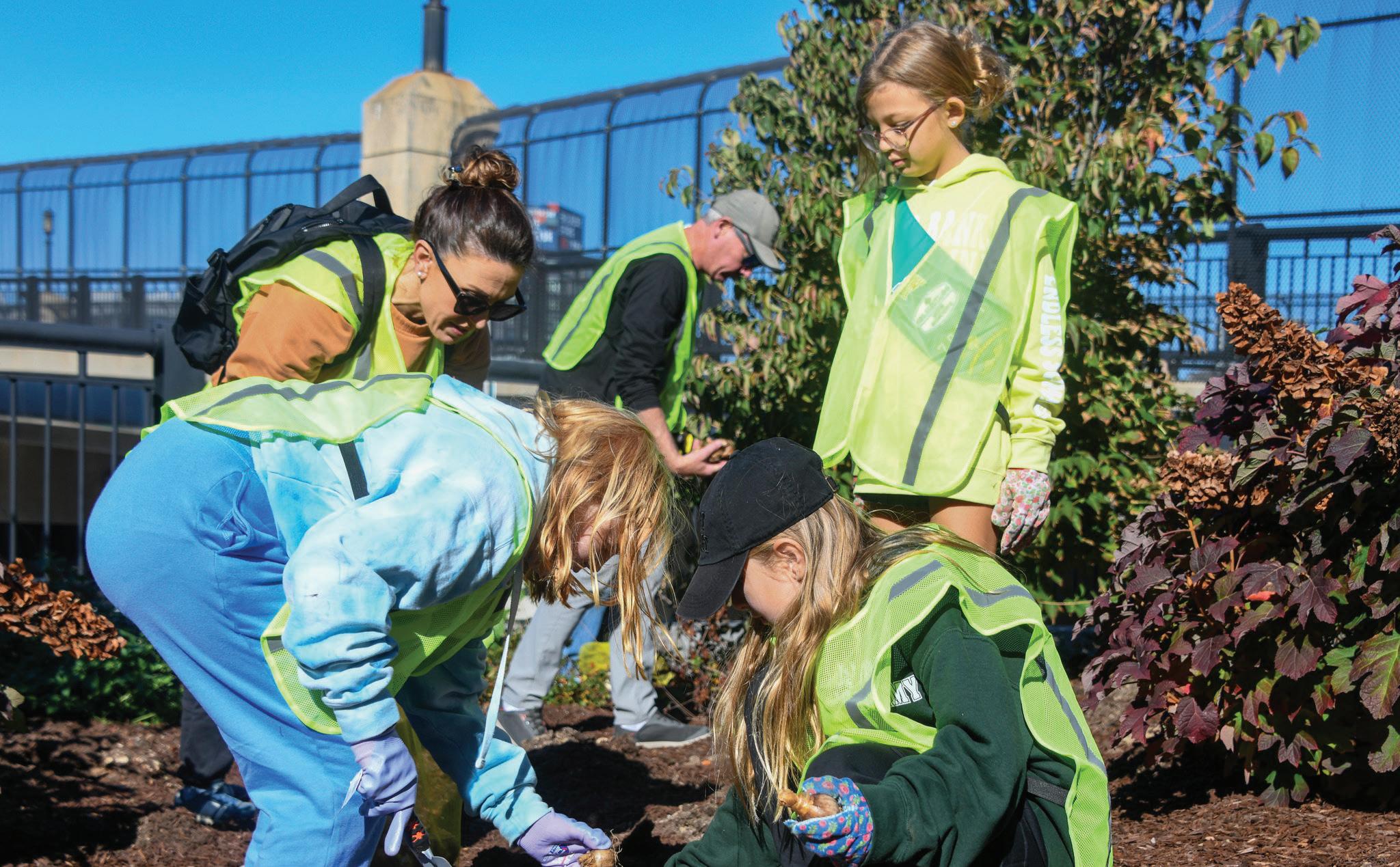






















The Massachusetts Senate passed a supplemental budget closing out Fiscal Year 2024, fulfilling the state’s obligations to critical programs and services used by residents statewide. The funding supports treatment for substance and alcohol misuse, public health hospital investments, universal school meals, and targets $12 million for fiscally distressed community health centers, among other investments. Boosting funding for health centers will help provide equitable care in cities and towns across the state.
“This supplemental budget delivers critical funding for substance abuse treatment programs, veterans services and distressed health centers,” said Senator Nick Collins. “As importantly, this budget includes funding for hard earned collective bargaining agreements for the Teamsters Local Union No. 122, Massachusetts Department of Transportation and the Coalition of MassDOT Unions, Service Employees International Union, Local 888, Office of Professional Employees International Union AFL/CIO Local 6, Union of Public Employees/UFPO Local 1000, AFSCME Local 653.”
The bill makes several changes to benefit the state’s veterans, allowing veterans to receive free license plates and clarifying that municipalities can create veteran housing preferences within existing affordable housing frameworks. It also ratifies several approved collective bargaining agreements. Housing provisions of the bill will allow the Housing Development Incentive Program (HDIP) to fund certified housing development projects that include new construction or substantial rehabilitation of an existing property and allow for the carryover of the $30 million annual HDIP tax credit authorizations if not fully awarded in a given year.
Further changes include clarifying tribal governments as eligible entities for the Municipal Vulnerability Preparedness program and clarifying the taxable net income of a corporation when the single sales factor is not applicable.
The legislation’s $700 million allocation includes:
$11 million for tax abatements for veterans, widows, blind persons and the elderly.
$12.7 million for the Municipal Regionalization and Efficiencies Incentive Reserve.
$7.6 million for health and human services and MassHealth administration.
$565.4 million for MassHealth caseload ($0 net cost after federal reimbursements).
$5 million for public health hospitals.
$1.3 million for labor and workforce development administration.
$7.3 million for Residential Assistance for Families in Transition (RAFT).
$8.7 million for universal school meals.
$690,000 for the Chief Medical Examiner.
$200,000 for the National Guard.
$622,000 for the Massachusetts Emergency Management Agency.
$1 million for the Massachusetts District Attorneys Association.
$2.5 million for start-up costs for online lottery.
$14 million for Section 35 treatment for substance and alcohol use disorder.
$400,000 for mosquito-borne disease prevention.
$46,000 for the county sheriffs.
$12 million for fiscally strained community health centers.
The bill makes additional changes to modernize and clarify existing state laws. A previous version of this bill having passed the House of Representatives, the two branches will now reconcile the differences between the bills before sending it to the Governor’s desk.

